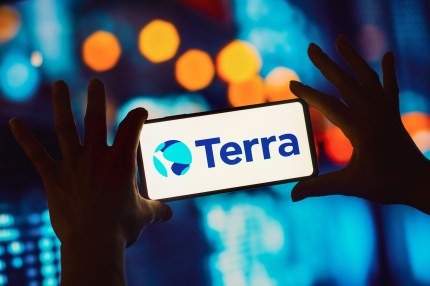Sierra Space’s Dream Chaser spaceplane is off the manifest for United Launch Alliance’s second Vulcan Centaur flight due to scheduling delays, with an “inert payload” taking its place, the rocket company said on Wednesday.
Sierra reportedly informed ULA that it had “significant risk” toward making the September launch date and that it would “step aside” so the rocket company could move ahead with its certification with the Department of Defense, ULA CEO Tory Bruno said during a press conference. No doubt ULA is eager to move forward with this high-stakes second launch: It’s the final step before the new rocket can be certified to carry out national security missions for the Department of Defense (DOD). ULA flew the first Vulcan mission at the beginning of the year.
The company is also planning on launching technology “experiments and demonstrations” along with the inert payload, though Bruno did not expand on what those might be during the press conference.
The rocket company also plans on launching at least two more Vulcan missions before the end of the year. Those two national security missions, dubbed USSF-106 and USSF-87, are the first in a series of backlogged launches ULA has under contract with the DOD.
In a separate statement, Sierra Space said that despite the slip, its first Dream Chaser spaceplane, called Tenacity, is still on track for its maiden mission before the end of the year. Tenacity, along with its expendable Shooting Star cargo module, completed environmental testing, a series of tests that ensure the vehicle will survive the harshness of launch and orbit, at the beginning of May. The plane was delivered to NASA’s Kennedy Space Center in Florida at the end of that month, where they are now undergoing final testing before launch.
Unlike SpaceX’s Dragon or Boeing’s Starliner, the 30-foot-long Dream Chaser is designed to land horizontally on a runway, similar to NASA’s retired space shuttle. The spaceplane is designed to deliver cargo resupply missions to the International Space Station for NASA, but it’s been badly delayed. Back in 2016, Sierra Space was awarded the Commercial Resupply Services 2 (CRS-2) from the agency, with the company anticipated to start fulfilling those missions in late 2019.
For its first mission, the first of seven under the CRS-2 contract, Dream Chaser will deliver 7,800 pounds of cargo to the ISS. It will spend a total of 45 days attached to the station before returning to Florida for inspection, refurbishment and reuse.
Sierra is also planning a crewed version of Dream Chaser, as well as an inflatable habitat module that could operate in low Earth orbit as a private space station. The company has raised $1.7 billion to date to scale its various space projects.






























Comment